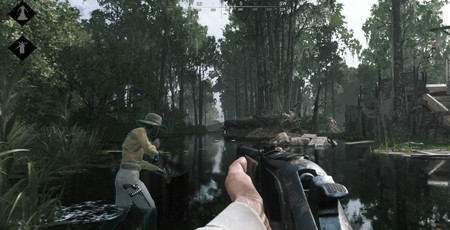
Price: £35.99
Developer: Crytek
Publisher: Crytek
Platform(s): PC
It’s amazing what a game can get away with provided it has enough atmosphere. Hunt: Showdown is about 80 percent downtime in which your primary actions are trudging and wading. Your finger is always poised to squeeze the trigger but almost never actually on it. Moreover, when that moment finally comes, it might last seconds, before your precious hunter drops lifeless to the ground, and the hunt ends - and begins again.
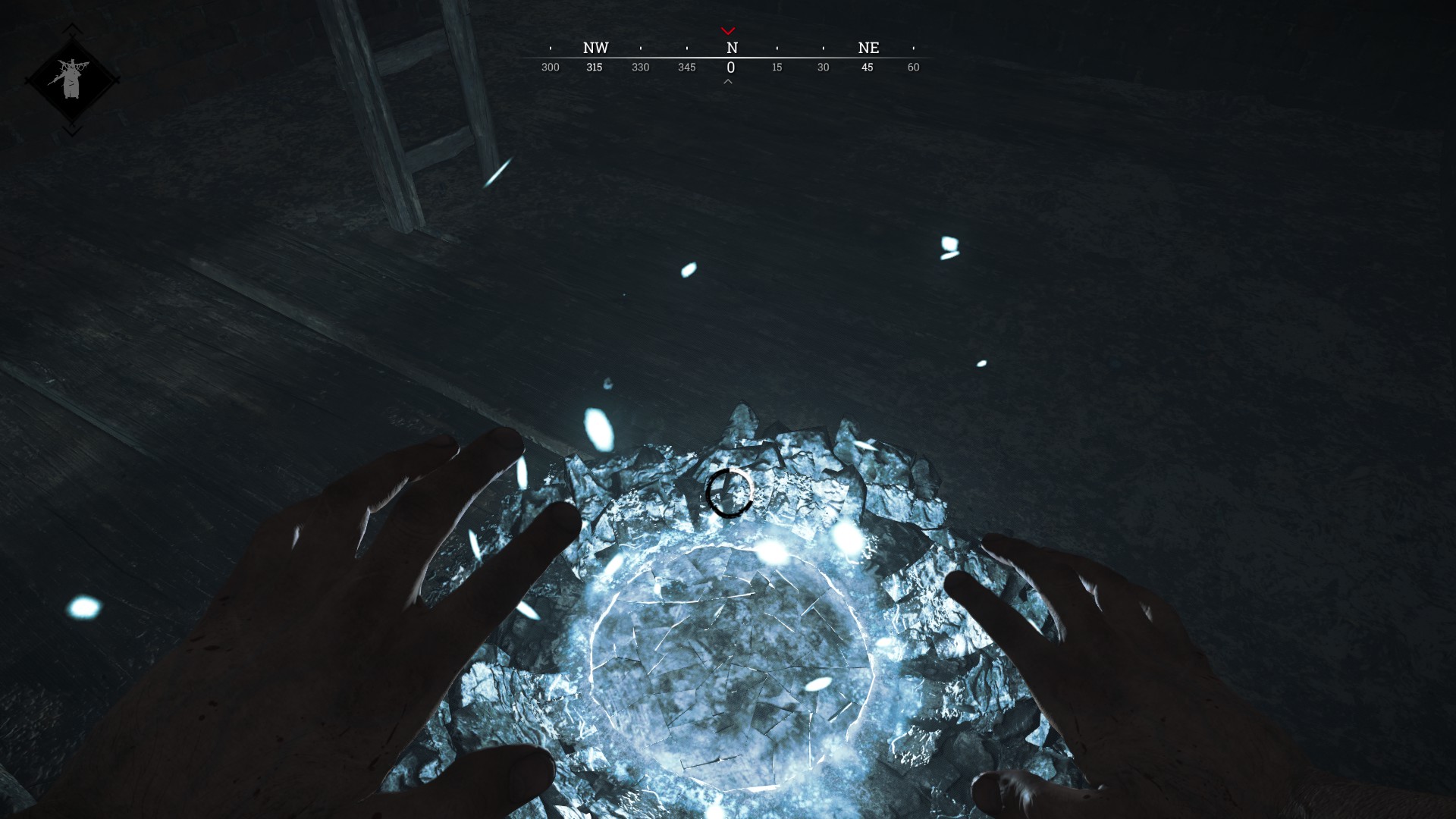
In any other game, this would be dull as bayou water. In Hunt it’s electrifying, because although moment-to-moment the game may feel like nothing, every one of those moments is charged with the potential to explode into action. Every step through the boggy marshland of Hunt’s world could be your last, every rattled chain or startled zombie could be the first domino in your downfall (or in fewer cases, victory).
It’s worth noting Hunt is far from alone in this. Multiplayer games that thrive on tension are very much in vogue, most notably in the battle royale genre. However, Hunt is not a battle royale game, reliant on the coming together of players to generate action. Showdown has its own entirely unique structure, one that allows for far more interesting tactical play than the games it is in part inspired by.

A round of Hunt revolves around tracking down and killing a powerful supernatural creature. Whether playing solo or in teams of two or three, your initial objective is to collect three clues, spooky anomalies scattered randomly around the map. Each clue you collect narrows down the potential hiding places of the monster, and once you’ve collected three of them, the game will tell you exactly where the creature resides.
Once you’ve got the clues, you can go and kill the monster. This is essentially a boss fight which takes place underground. There are several different varieties. You could find yourself squaring off against the butcher, a hulking slab of Texas Chainsaw Massacre which attacks you with a meathook. Alternatively, you could face the Spider, an eight-legged nightmare that scuttles around on the walls and ceiling and whittles away at your health with venomous attacks.
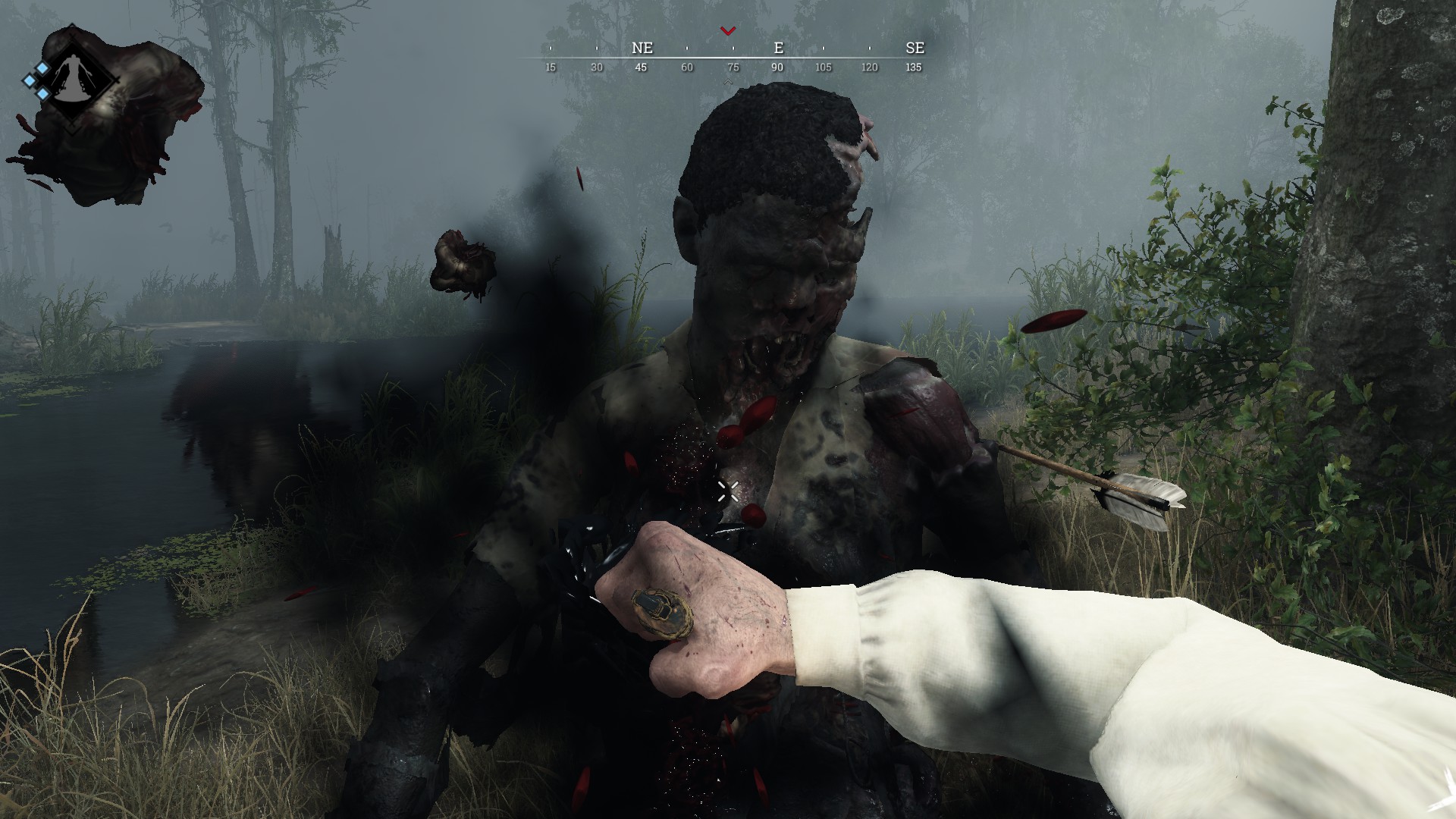
If you’re able to defeat the monster (and that’s always a big 'if'), then you enter the Banishment phase, where you need to wait while a timer counts down before you can collect the prize of your hunt. That might sound simple enough, but the same process also alerts every other hunter in the game to your location, meaning there’s a reasonable chance some of them, possibly all of them, will come and attempt to rip the prize from your cold dead hands.
Should you survive the Banishment phase, your last goal is to exfiltrate the area alive by getting to one of the exit points marked on the map. Of course, you’re still fair game for any hunters out there, so you’ll need to watch for potential ambushes right until the moment you successfully exit.

That’s the structure which Crytek has built for a standard match to follow. But the beauty of Hunt is that you’ve no obligation to follow that structure whatsoever. You could forego the monster hunt and instead focus on setting up an ambush to steal the prize from whomever kills the creature. Alternatively, you could stick to the fringes of the map, chasing lower-level enemies and picking up experience, before exfiltrating without having engaged in the Hunt at all.
What’s particularly fascinating about this is no matter how you play, the tension never eases, because your game still has the potential to go arse-in-the-air at any moment. Hunt never indicates to you where other players are, or even how many of them there are on the map. The only clues you get are environmental noises, such as gunshots in the distance and the Banishment notification. Hence, even if you’re slicing up zombies with your knife at the edge of the map, you still need to tread carefully, watching for noise-making traps like rattling chains or barking dogs, and trying to minimise your use of guns. Otherwise, you might attract the attention of other hunters looking to play The Most Dangerous Game.
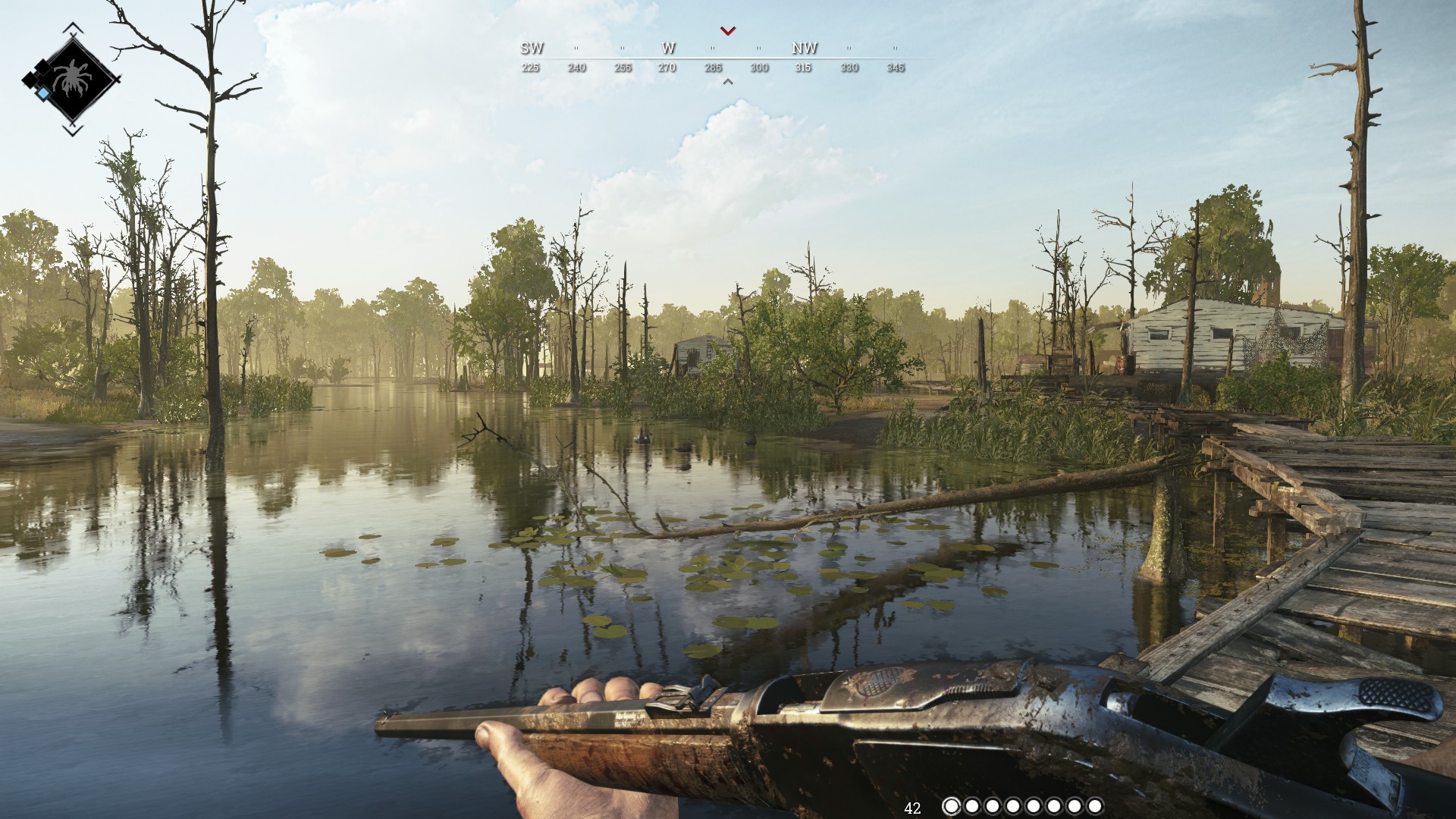
It’s a wonderfully clever format, and the tension is bolstered by superb environment design and artistry. Crytek uses its formidable CryEngine V to create a vision of the 19th century Deep South that sinks you up your waist in dread. Its sweltering swampland is all murky waters and rusting gates and decaying rural industry, while almost everywhere you look there’s something harbouring the potential to descend your game into chaos.
Even your weapons are dreadful things, lumbering rifles and revolvers that are slow to aim and slower to fire - but devastating when they connect. As a brief aside, Hunt has some of best reload animations I’ve ever seen, with wonderfully dextrous and physical finger-movements. You can almost feel the grit and oil under your thumbs.
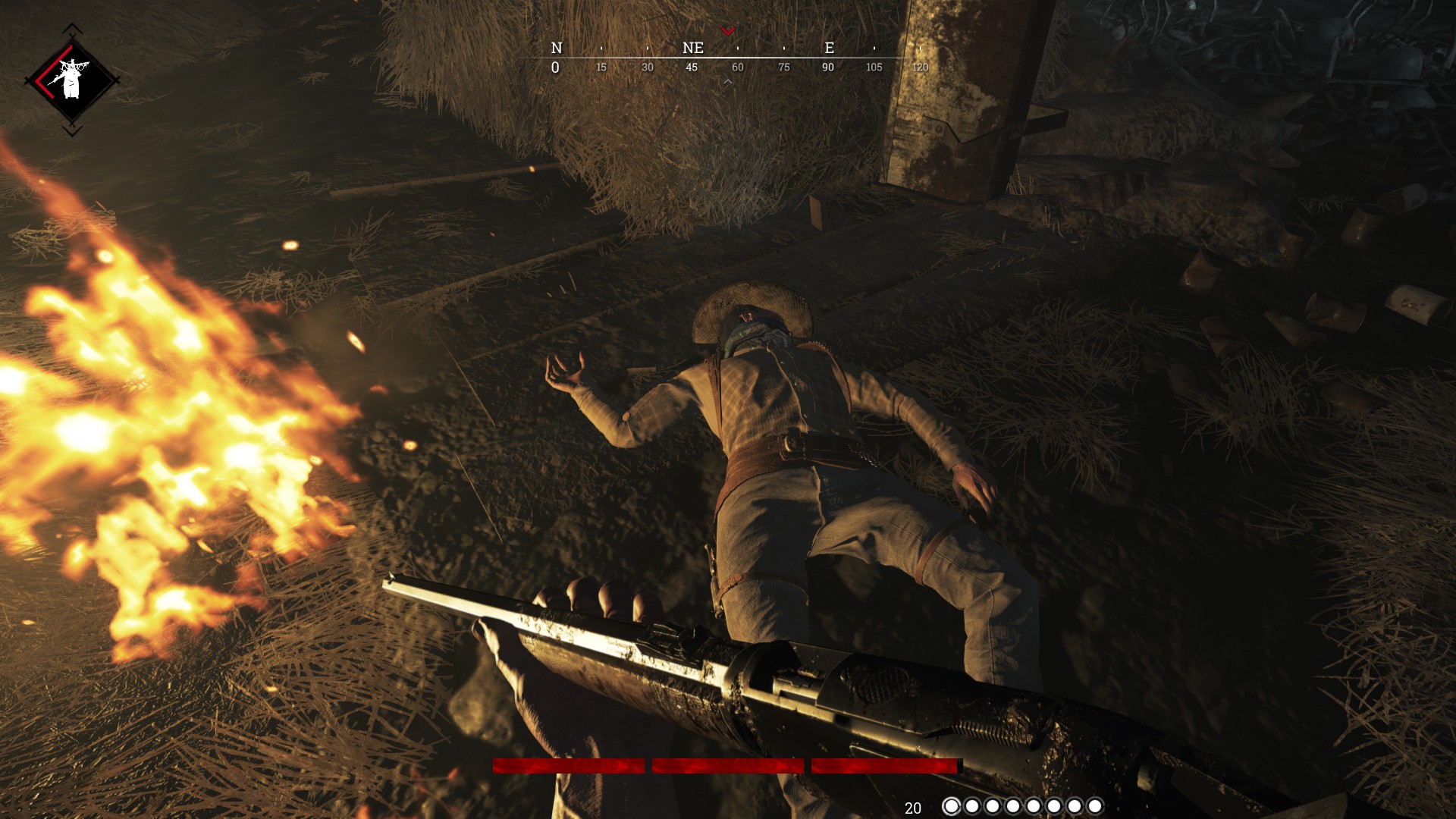
As an experience in tense and atmospheric gunplay, Hunt is utterly captivating, but I’m less enthused by the progression system. Basically, if your hunter is killed, they’re gone forever, but you do retain some measure of experience through their Bloodline, a measure of progress that is shared across all hunters. Nonetheless, you’ll still lose all their weapons and equipment, and when you get a new hunter, if you want to upgrade their equipment, then you have to buy more.
I understand Crytek’s reason behind including a permadeath mechanic; it adds an extra layer to the tension. But honestly, I don’t think that Hunt needs it. The game is tense enough without the potential for losing your hunter permanently. It also seems like Crytek has tacitly acknowledged this to an extent, as new players won’t risk losing their hunter until reaching level 11, which is going to take around 10 hours of play. At that point, however, you’re going to have an awful lot to lose, and I wonder whether the game wouldn’t be better served with a more traditional progression system.
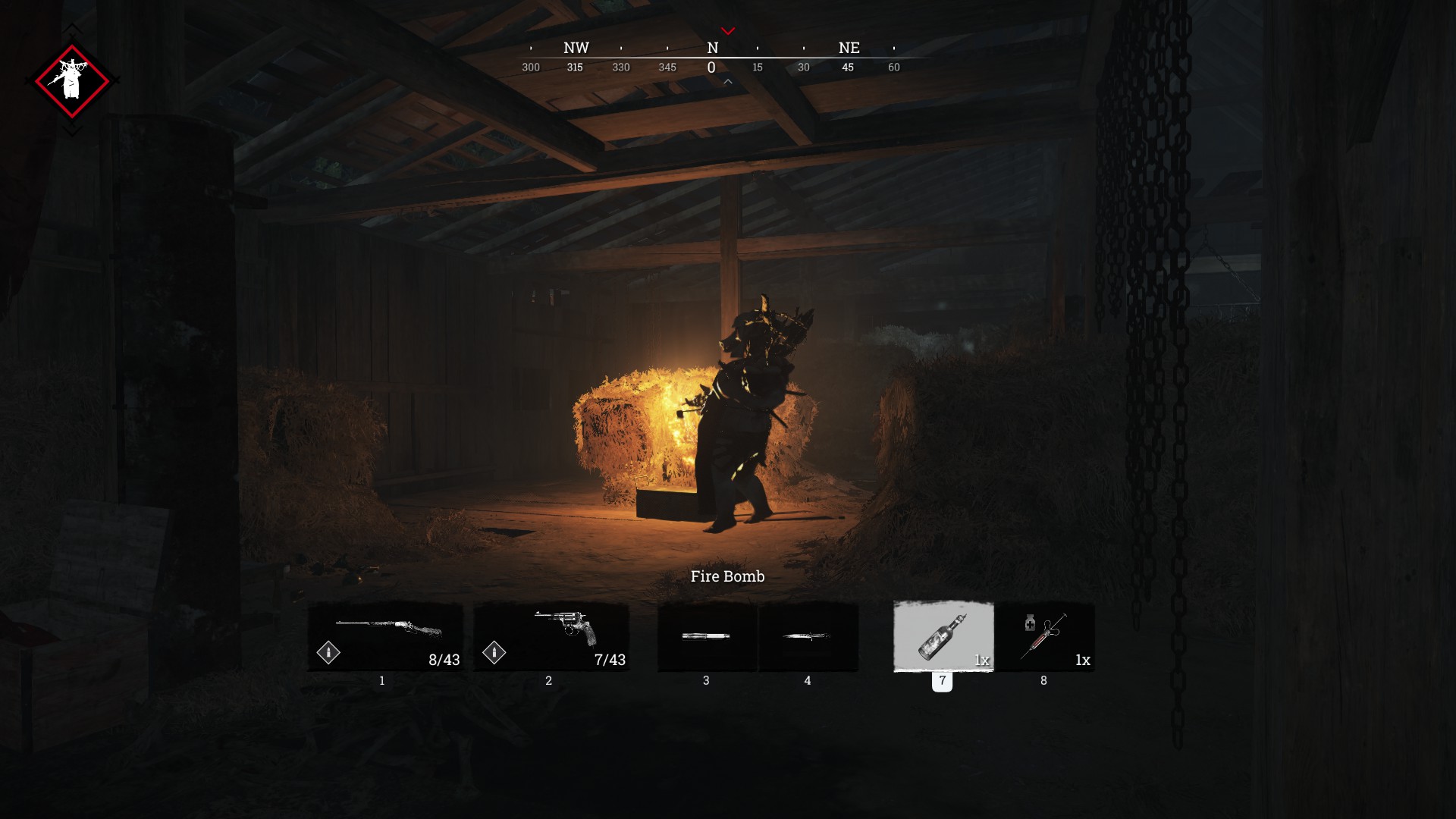
Nonetheless, the time I enjoyed with Hunt is enough for me to recommend it. There's simply nothing else quite like it available just now. It has the DNA of those Battle Royale titles but offers a slower, more thoughtful, and more flexible experience. Add to that an atmosphere that gives S.T.A.L.K.E.R. a run for its money, and you’ve got an attractive little prospect indeed.


MSI MPG Velox 100R Chassis Review
October 14 2021 | 15:04

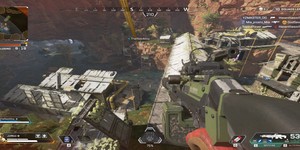
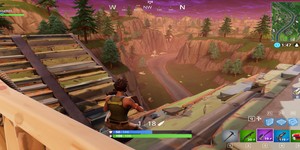
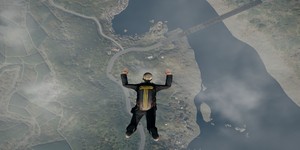





Want to comment? Please log in.